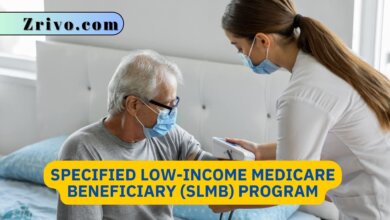Health Reimbursement Arrangement
A Health Reimbursement Arrangement, HRA, is a type of health spending account that employees use to pay for eligible medical expenses. Read on to learn more about Health Reimbursement Arrangement plans.

Health Reimbursement Arrangements, HRAs, are a cost-effective way for employers to supplement their group health insurance and reimburse employees for medical expenses. They offer employees more control over how they use their funds and are also tax-free. There are many different types of HRAs available for employers. Some are specialized for specific groups of people, while others are more general.
Health Reimbursement Arrangement, HRA, is a good option for companies that want to offer a more affordable health plan than a traditional group insurance plan. It also allows employees to choose a plan that meets their specific needs. The rules for these plans differ from those for other healthcare accounts, like flexible spending accounts (FSAs) and health savings accounts (HSAs). Employees can purchase a high-deductible health plan or a lower-deductible one that still covers medical expenses. These plans are a great way for employers to reduce their spending on health coverage and save tax dollars. They also help to attract and retain top talent. There are many types of HRA plans, each with its own set of benefits and features. The best type for your business depends on what your goals are and the budget you have to work with.
If you have a small business with fewer than 50 full-time employees, you may be interested in a Qualified Small Employer HRA (QSEHRA). This is one of the most popular HRAs available to small businesses. It lets you offer your employees non-taxed reimbursements for specific healthcare costs up to an annual limit determined by the IRS. You can use these funds for out-of-pocket medical expenses, deductibles and copays, and even prescription medications and dental expenses.
Another option for smaller companies is an Individual Coverage HRA (ICHRA). These plans are a newer offering that can be used to reimburse individual health insurance premiums that employees choose. Unlike HRAs that are integrated with the group insurance plan, this type of HRA is not portable. That means if an employee changes jobs, the remaining money in the account is not transferred to them. The most popular HRAs are the QSEHRA and the ICHRA, which allow employees to purchase individual health insurance with pretax dollars. While these HRAs are more suitable for smaller employers, they can also be a valuable resource for larger businesses that must provide health care to their employees.
Who is Eligible for HRA plans?
HRAs are a great way for employers to offer employees an alternative to a traditional group health insurance plan. They allow for a wide variety of benefits, including reimbursements for out-of-pocket medical expenses, copayments, and policy deductibles. The employer is not responsible for the costs of the HRA, and reimbursements are tax-free for employees and their dependents up to a maximum dollar amount.
Unlike traditional group health coverage, employer contributions to HRAs are not subject to income or employment taxes at the Federal or California State level (depending on individual state laws). Reimbursements from an HRA for IRS-eligible medical and dental care expenses are also tax-free, so employees can use these funds to pay for out-of-pocket costs without worrying about a tax bill.
One type of HRA is called an “excepted benefit HRA.” This type of HRA can reimburse premiums for a range of individual health insurance, short-term plan, and COBRA coverage options. However, it cannot be used to reimburse premiums for a qualified group health plan or Medicare Parts A, Medicare Part B, C, or D.
Another type of HRA is an “individual coverage HRA.” This type of HRA can be used to reimburse the cost of individual health insurance plans or premiums for short-term health plans as long as they are deemed affordable by the marketplace. This type of HRA is commonly offered by larger employers and can also benefit small businesses.
To be eligible for this type of HRA, an employee must have a qualifying group health plan with their employer and must be covered under the qualifying plan during the period of coverage by the HRA. The rule requires employers to notify participants that they are eligible for this type of HRA at least 90 days before the start of each plan year.
The final rule also prohibits an employer from making discriminatory HRA-IIHIC offers under HIPAA nondiscrimination rules. In particular, an employer must offer the same amount of HRA-IIHIC to all similarly situated participants in the class regardless of their health status. Exceptions to this general rule include offering higher HRA-IIHIC contributions based on an employee’s age or family size.





